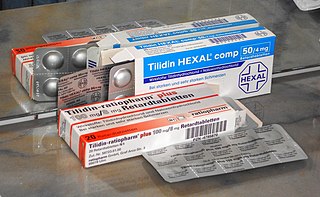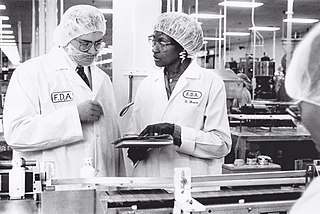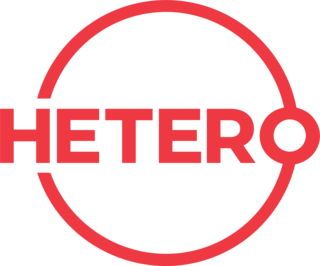
A medication is a drug used to diagnose, cure, treat, or prevent disease. Drug therapy (pharmacotherapy) is an important part of the medical field and relies on the science of pharmacology for continual advancement and on pharmacy for appropriate management.

The pharmaceutical industry discovers, develops, produces, and markets drugs or pharmaceutical drugs for use as medications to be administered to patients, with the aim to cure them, vaccinate them, or alleviate symptoms. Pharmaceutical companies may deal in generic or brand medications and medical devices. They are subject to a variety of laws and regulations that govern the patenting, testing, safety, efficacy using drug testing and marketing of drugs. The global pharmaceuticals market produced treatments worth $1,228.45 billion in 2020 and showed a compound annual growth rate (CAGR) of 1.8%.
Many countries have measures in place to limit advertising by pharmaceutical companies.

The regulation of therapeutic goods, defined as drugs and therapeutic devices, varies by jurisdiction. In some countries, such as the United States, they are regulated at the national level by a single agency. In other jurisdictions they are regulated at the state level, or at both state and national levels by various bodies, as in Australia.
An active ingredient is the ingredient in a pharmaceutical drug or pesticide that is biologically active. The similar terms active pharmaceutical ingredient and bulk active are also used in medicine, and the term active substance may be used for natural products. Some medication products may contain more than one active ingredient. The traditional word for the active pharmaceutical agent is pharmacon or pharmakon which originally denoted a magical substance or drug.

Off-label use is the use of pharmaceutical drugs for an unapproved indication or in an unapproved age group, dosage, or route of administration. Both prescription drugs and over-the-counter drugs (OTCs) can be used in off-label ways, although most studies of off-label use focus on prescription drugs.
Dr. Reddy's Laboratories is an Indian multinational pharmaceutical company located in Hyderabad, Telangana, India. The company was founded by Kallam Anji Reddy, who previously worked in the mentor institute Indian Drugs and Pharmaceuticals Limited. Dr. Reddy's manufactures and markets a wide range of pharmaceuticals in India and overseas. The company has over 190 medications, 60 active pharmaceutical ingredients (APIs) for drug manufacture, diagnostic kits, critical care, and biotechnology products.
Test data exclusivity refers to protection of clinical trial data required to be submitted to a regulatory agency to prove safety and efficacy of a new drug, and prevention of generic drug manufacturers from relying on this data in their own applications. It provides a form of market exclusivity outside that provided by patent rights.
The pharmaceutical industry is one of the leading industries in the People's Republic of China, covering synthetic chemicals and drugs, prepared Chinese medicines, medical devices, apparatus and instruments, hygiene materials, packing materials, and pharmaceutical machinery. China has the second-largest pharmaceutical market in the world as of 2017 which is worth US$110 billion. China accounts for 20% of the world's population but only a small fraction of the global drug market. China's changing health-care environment is designed to extend basic health insurance to a larger portion of the population and give individuals greater access to products and services. Following the period of change, the pharmaceutical industry is expected to continue its expansion.

Hetero is an Indian pharmaceutical company and the world’s largest producer of anti-retroviral drugs. It is also among the world’s leading producers of key Active Pharmaceutical Ingredients (APIs) with presence in 145+ countries and backed by 30 years of experience in the pharma sector. Hetero’s business includes APIs, generics, biosimilars, custom pharmaceutical services, and branded generics. At Hetero, every action seeks to inspire human belief in accessibility and affordability of life-saving medicines across the world.
Direct-to-consumer advertising (DTCA) refers to the marketing and advertising of pharmaceutical products directly to consumers as patients, as opposed to specifically targeting health professionals. The term is synonymous primarily with the advertising of prescription medicines via mass media platforms—most commonly on television and in magazines, but also via online platforms.
Pharmaceutical policy is a branch of health policy that deals with the development, provision and use of medications within a health care system. It embraces drugs, biologics, vaccines and natural health products.
The ethics involved within pharmaceutical sales is built from the organizational ethics, which is a matter of system compliance, accountability and culture. Organizational ethics are used when developing the marketing and sales strategy to both the public and the healthcare profession of the strategy. Organizational ethics are best demonstrated through acts of fairness, compassion, integrity, honor, and responsibility.
Medication costs, also known as drug costs are a common health care cost for many people and health care systems. Prescription costs are the costs to the end consumer. Medication costs are influenced by multiple factors such as patents, stakeholder influence, and marketing expenses. A number of countries including Canada, parts of Europe, and Brasil use external reference pricing as a means to compare drug prices and to determine a base price for a particular medication. Other countries use pharmacoeconomics, which looks at the cost/benefit of a product in terms of quality of life, alternative treatments, and cost reduction or avoidance in other parts of the health care system. Structures like the UK's National Institute for Health and Clinical Excellence and to a lesser extent Canada's Common Drug Review evaluate products in this way.
At its most basic level, a formulary is a list of medicines. Traditionally, a formulary contained a collection of formulas for the compounding and testing of medication. Today, the main function of a prescription formulary is to specify particular medications that are approved to be prescribed at a particular hospital, in a particular health system, or under a particular health insurance policy. The development of prescription formularies is based on evaluations of efficacy, safety, and cost-effectiveness of drugs.

A drug coupon is a coupon intended to help consumers save money on pharmaceutical drugs. They are offered by drug companies or distributed to consumers via doctors and pharmacists, and most can be obtained online. There are drug coupons for drugs from many categories such as cholesterol, acne, migraine, allergies, etc.
Pharmaceutical fraud involves activities that result in false claims to insurers or programs such as Medicare in the United States or equivalent state programs for financial gain to a pharmaceutical company. There are several different schemes used to defraud the health care system which are particular to the pharmaceutical industry. These include: Good Manufacturing Practice (GMP) Violations, Off Label Marketing, Best Price Fraud, CME Fraud, Medicaid Price Reporting, and Manufactured Compound Drugs. Examples of fraud cases include the GlaxoSmithKline $3 billion settlement, Pfizer $2.3 billion settlement, and Merck $650 million settlement. Damages from fraud can be recovered by use of the False Claims Act, most commonly under the qui tam provisions which rewards an individual for being a "whistleblower", or relator (law).
The distribution of medications has special drug safety and security considerations. Some drugs require cold chain management in their distribution.
Fremanezumab, sold under the brand name Ajovy, is a medication used to prevent migraines in adults. It is given by injection under the skin.

Deadly Medicines and Organised Crime: How Big Pharma Has Corrupted Healthcare is a book by Peter C. Gøtzsche with forewords by Richard Smith and Drummond Rennie. It was published by Taylor & Francis in 2013.




